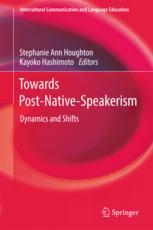

Most ebook files are in PDF format, so you can easily read them using various software such as Foxit Reader or directly on the Google Chrome browser.
Some ebook files are released by publishers in other formats such as .awz, .mobi, .epub, .fb2, etc. You may need to install specific software to read these formats on mobile/PC, such as Calibre.
Please read the tutorial at this link: https://ebookbell.com/faq
We offer FREE conversion to the popular formats you request; however, this may take some time. Therefore, right after payment, please email us, and we will try to provide the service as quickly as possible.
For some exceptional file formats or broken links (if any), please refrain from opening any disputes. Instead, email us first, and we will try to assist within a maximum of 6 hours.
EbookBell Team

4.4
102 reviewsThis book probes for a post-native-speakerist future. It explores the nature of (English and Japanese) native-speakerism in the Japanese context, and possible grounds on which language teachers could be employed if native-speakerism is rejected (i.e., what are the language teachers of the future expected to do, and be, in practice?). It reveals the problems presented by the native-speaker model in foreign language education by exploring individual teacher-researcher narratives related to workplace experience and language-based inclusion/exclusion, as well as Japanese native-speakerism in the teaching of Japanese as a foreign language. It then seeks solutions to the problems by examining the concept of post-native-speakerism in relation to multilingual perspectives and globalisation generally, with a specific focus on education.